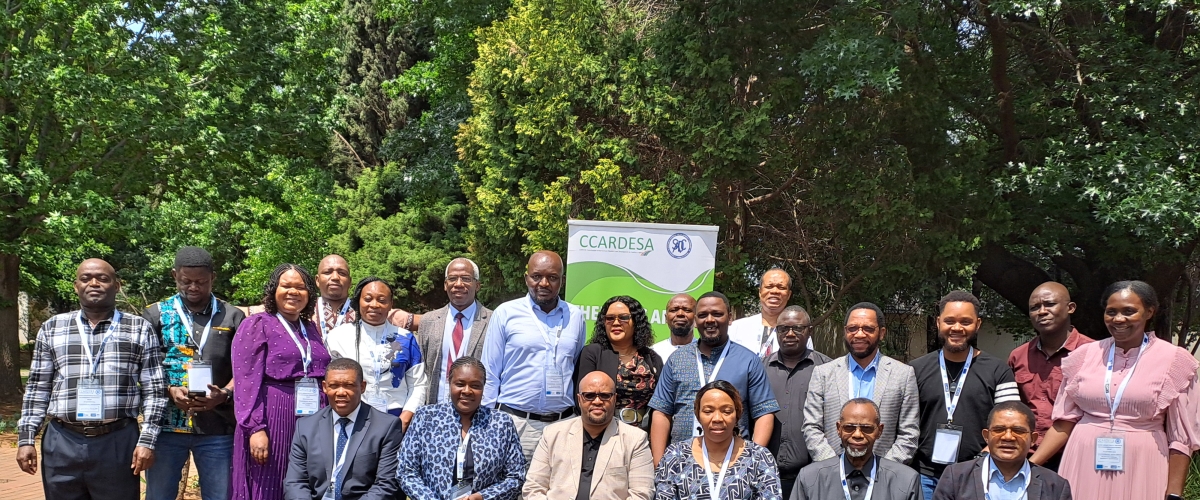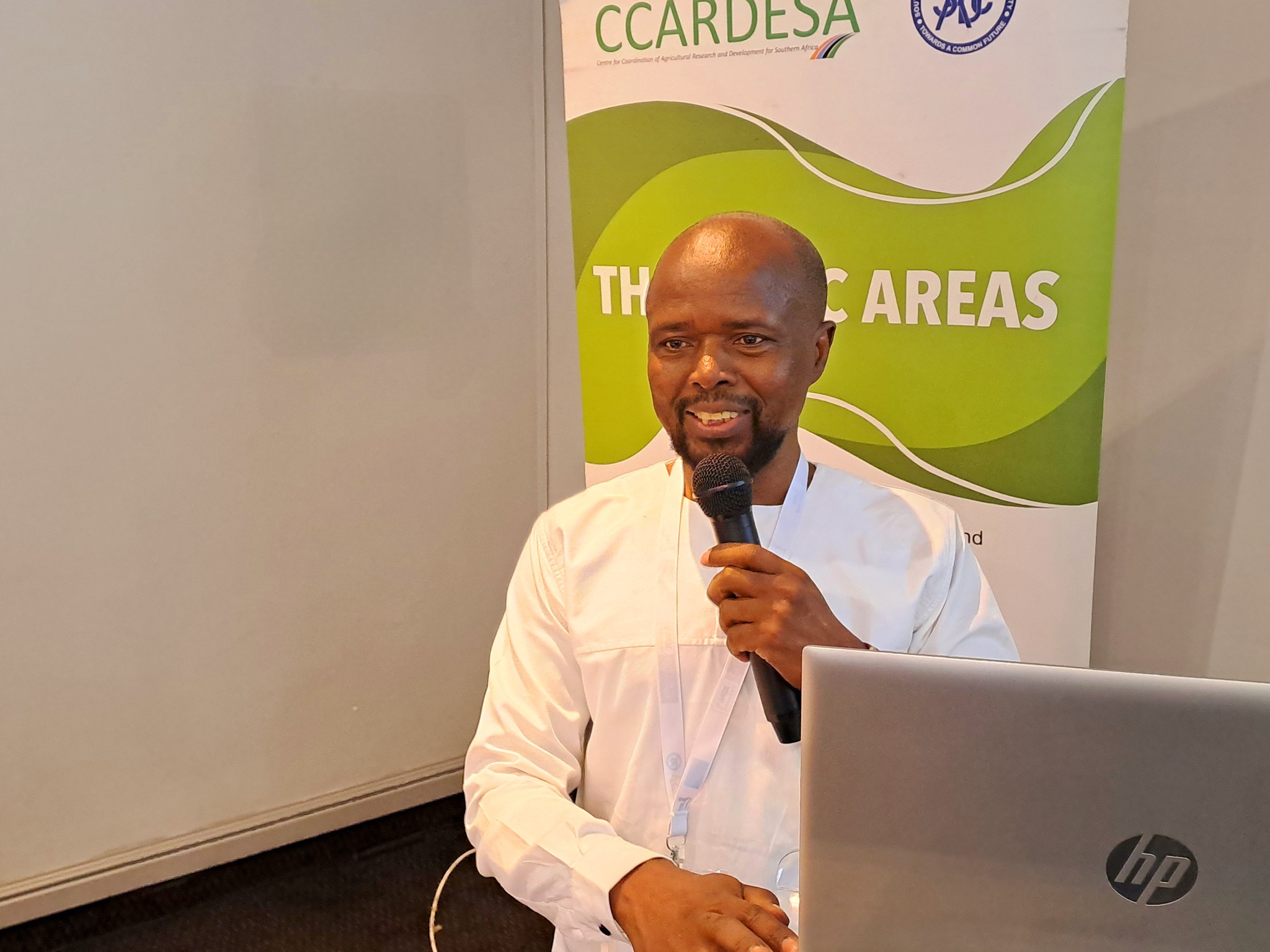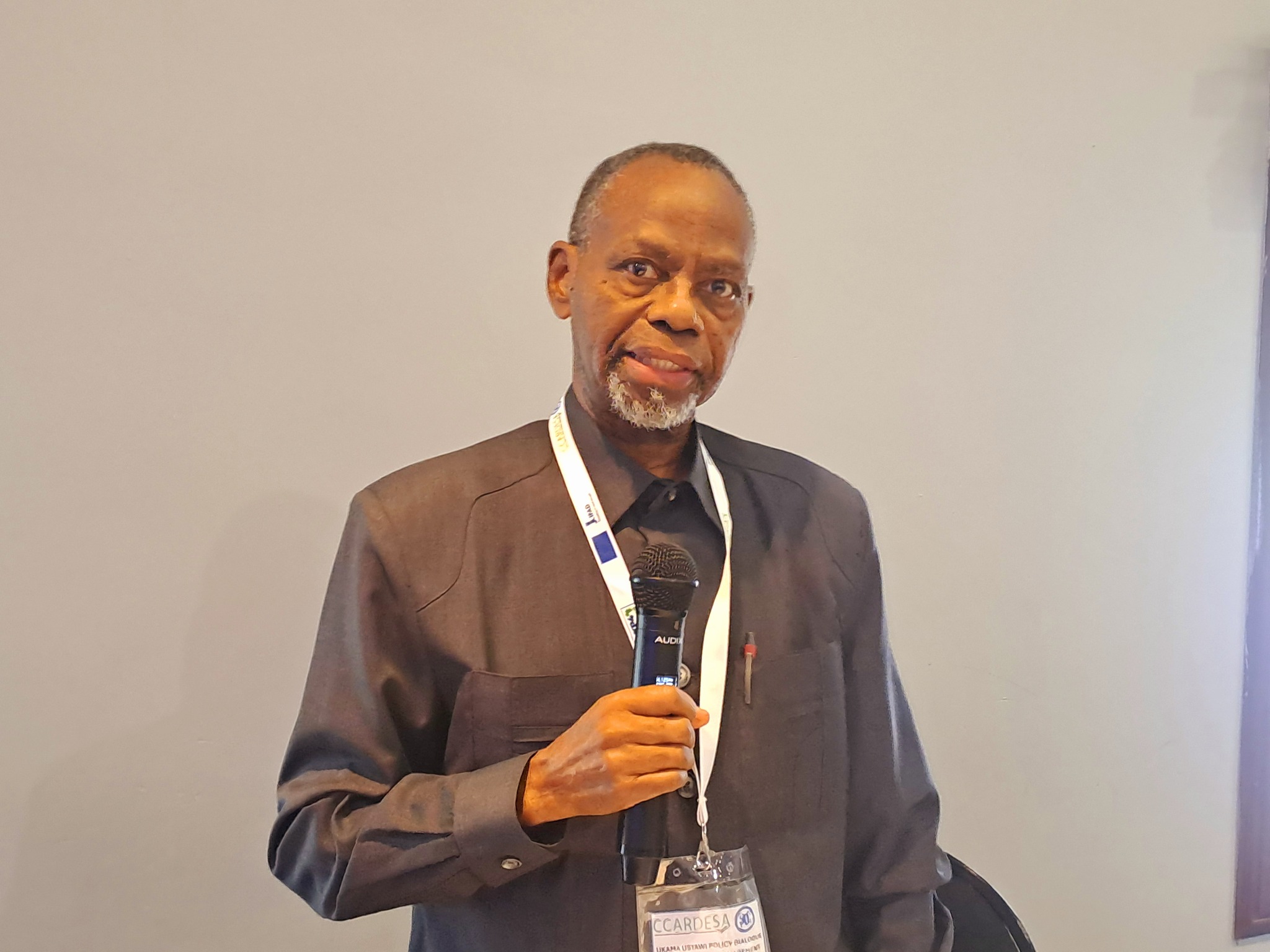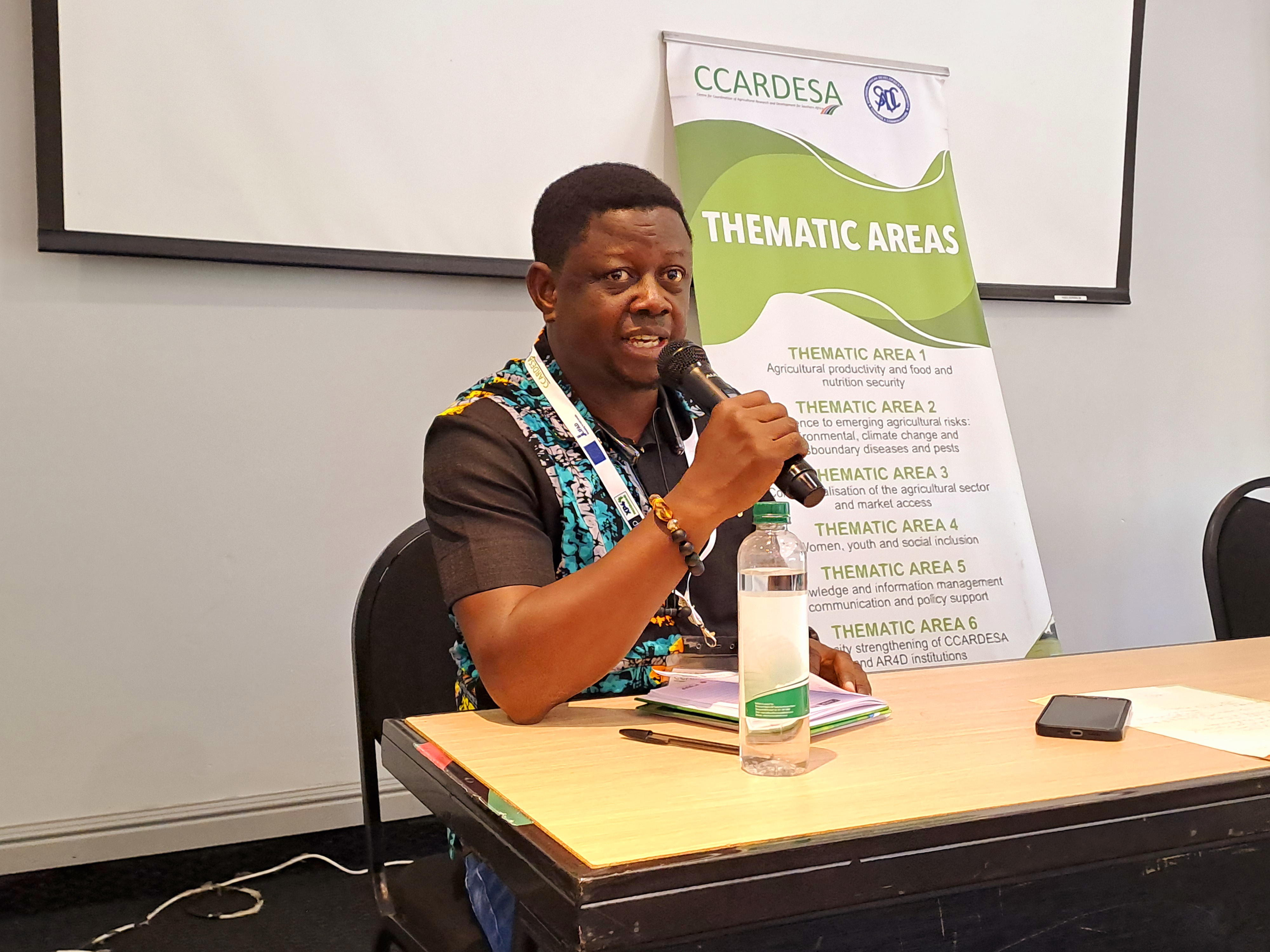
Enhancing Knowledge Management in institutions requires enforcing a national policy aimed at influencing knowledge sharing and serving as a repository of knowledge among stakeholders, key players, and the public. On 25th October 2024, the Centre for Coordination of Agricultural Research and Development for Southern Africa (CCARDESA) and the International Water Management Institute (IWMI), in partnership with the Association for Strengthening Agricultural Research in Eastern and Central Africa (ASARECA), held a Knowledge Management Policy Dialogue at Birchwood Hotel in Johannesburg, South Africa, through the Ukama Ustawi Initiative.
The IWMI-led Ukama Ustawi (UU) Initiative is a four-year project worth approximately USD 40 million that promotes diversification for resilient agribusiness ecosystems in East and Southern Africa (ESA). The initiative is set to end in 2024 and targets 12 countries in this region: Eswatini, Ethiopia, Kenya, Tanzania, Malawi, Mozambique, Madagascar, Rwanda, Uganda, South Africa, Zambia, and Zimbabwe. The main goal of the UU Initiative is to address food and nutrition security risks in the region, which stem from an overreliance on maize monoculture. The initiative instead promotes a climate-resilient, water-secure, and socially inclusive approach aimed at helping smallholders diversify and de-risk agri-food systems based on maize in the targeted countries.
The Knowledge Management Policy Dialogue brought together various agriculturalists, researchers, and knowledge management experts to deliberate on strategies for enhancing knowledge management visibility in East and Southern Africa. The event, held in Johannesburg, South Africa, was organised by the Centre for Coordination of Agricultural Research and Development for Southern Africa (CCARDESA) and the International Water Management Institute (IWMI), with financial support of the CAADP XP 4 Programme through the International Fund for Agricultural Development (IFAD).
The meeting’s objectives were to create pathways for policymakers to adopt knowledge-management recommendations to improve regional agricultural resilience and food security. Participants discussed developing actionable recommendations to improve knowledge management practices and their integration into policy frameworks. The meeting also aimed to promote collaboration among institutions and explore potential ways to institutionalize knowledge management strategies within agricultural practices.
In his official opening remarks, CCARDESA’s Executive Director, Cliff Dlamini, stressed the necessity of assigning roles to bring about policy shifts in agricultural policy and emphasized the importance of generating and managing knowledge as key program outputs.
Professor Dlamini stated that knowledge management is essential for advancing East and Southern Africa’s program goals focused on food resilience and inclusivity. He noted that this can only happen if adequate support for knowledge management is secured.
“Knowledge is power; it can be preserved and be valuable to policymakers. Today’s dialogue is an opportunity to engage in knowledge management efforts,” stressed Professor Dlamini.

He called for more investment in organizational structures to achieve knowledge management goals. “Significant resources must be allocated to ensure visibility,” Professor Dlamini added.
He argued that while substantial knowledge has been generated to transform the agriculture sector, its dissemination to smallholder farmers needs to be more structured and supported.
This calls for a concerted effort to prioritise knowledge management, recognising its role as an institutional memory for future reference.
Professor Dlamini suggested that organisations should prioritise knowledge management roles at senior levels to increase their impact.
“We need strategic positions in knowledge management to amplify the voice of farmers and facilitate knowledge translation,” he said.
Consultant Hannock Kumwenda of Ukama Ustawi’s Learning Alliance, a knowledge-sharing network facilitated through IWMI’s partnership, presented findings from a scoping study. The research findings revealed how knowledge management could be elevated within policy frameworks.
Dr. Kumwenda highlighted the financial challenges, noting that funding for relevant institutions often relies on external sources.

“Financial resources are limited. Each partner funds their activities as long as benefits are clear. This calls for building on existing resources and exploring lead partnerships for effective management,” he explained.
Dr. Kumwenda emphasised that alliances gain strength when they leverage diverse strengths such as knowledge management and monitoring and evaluation—even though dedicated staff may not always be available for these functions.
Regional partner institutions are generally better equipped than national systems. For instance, some use mobile applications that improve visibility. National systems, on the other hand, tend to rely on Facebook and other accessible social media platforms. This situation highlights the need for adequate resources to maintain and update technologies.
Dr. Kumwenda noted that the gap between research and dissemination efforts in national systems continues to widen. Often, pilot projects rely on packages, and uptake slows when projects end. Investing in dissemination centres and in outreach to semi-literate farmers could help bridge this gap.
Knowledge exchange among regional bodies appears more effective, suggesting that more resources should be allocated to foster collaboration.
Dr. Kumwenda also raised the issue of effective learning alliances, explaining that what currently exists is often limited to sharing alliances of existing knowledge.
“Learning Alliances should be focused on building partnerships linked to data hubs and best practices. Models that have been tested and proven functional should be replicated,” Dr. Kumwenda said.
Professor Kingo Mchombu from the International University of Management of Namibia pointed out that a national policy is essential to influence and institutionalize knowledge management and that high-level buy-in is critical.

Professor Mchombu, a Knowledge Management Expert, cited Namibia as a case where concerted efforts led to the development of a national policy on knowledge management, recently submitted to the Office of the Prime Minister.
“The national policy was reviewed by parliamentarians, who participated in the process and contributed feedback before it was finalized for submission to the Prime Minister’s office,” he confirmed.
Once approved, knowledge management will gain significant recognition and be more easily institutionalised. This Namibian approach serves as a model worth replicating elsewhere.
Ultimately, member countries could benefit from developing national policies to strengthen their positions in knowledge management.
During the panel discussion on "Leveraging Tools for Knowledge Management and Policy Influence in Eastern and Southern Africa Region and Africa as a whole," Mr. Benjamin Abugri, Knowledge Management, Digitalization, and learning Lead Specialist at FARA, emphasised that Knowledge Management is a vital tool for sustainable development, central to donor-funded initiatives, as agencies increasingly require KM strategies. He intimated that the success of KM depends on tools that enable effective sharing of both tacit and explicit knowledge through either open or restricted access. Therefore, these tools must align with local contexts, integrating Indigenous and traditional knowledge, particularly in Africa, where ignoring this can lead to missed opportunities. He concluded that the continuous evaluation of KM tools is also crucial, ensuring they add value, remain relevant, are timely (considering advancements like AI), and are interoperable.

The Author is the Principal Agricultural Information Officer for the National Agricultural Information Services (NAIS).





